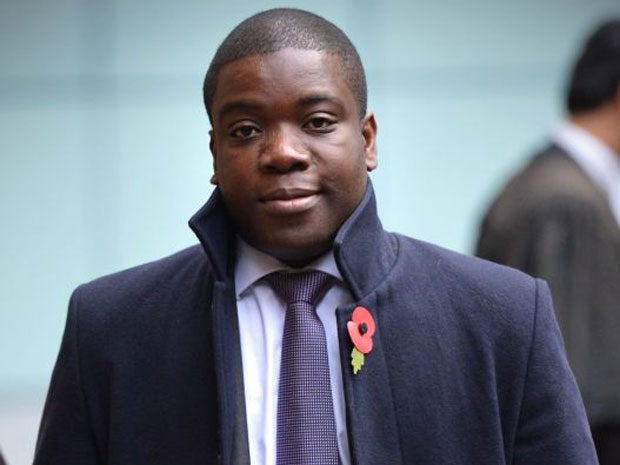UBS banker Kweku Adoboli denies being a rogue trader after losing £1.4bn

A banker accused of Britain's biggest ever fraud today denied he was acting as a rogue trader when he lost £1.4 billion.
Kweku Adoboli, 32, is accused of gambling away the money while working for Swiss bank UBS during the global financial crisis.
At one point he was at risk of causing the bank losses of 12 billion US dollars (£7.5 billion), jurors at Southwark Crown Court have heard.
But Adoboli today insisted he was not acting as a rogue trader and denied he had been gambling with the money.
And he claimed that if what he was doing amounted to gambling, then so did investment banking as a whole.
Asked by his defence barrister Paul Garlick QC how he felt when the prosecution used the term "rogue trader" to describe him, he looked up to the ceiling for some time and fought back tears, before saying: "It doesn't feel fair."
He said the losses had been made after senior traders at the bank convinced him to change from a bearish to a bullish point of view in July 2011.
This change of position backfired dramatically as the European banking sector continued to spiral downwards, he said.
Describing how senior colleagues had encouraged him change his opinion: "At that stage I broke, I just broke.
"At that point I should have held onto my conviction of fear of the market.
"At that very point I changed my position, that is why I don't believe I was a rogue trader.
"I wish I was a rogue trader, I wish I hadn't listened," he later added.
The former public schoolboy, of Clark Street, Whitechapel, east London, worked for UBS's global synthetic equities division, buying and selling exchange traded funds (ETFs), which track different types of stocks, bonds or commodities such as metals.
He told the jury he had put a "considerable amount of energy" into understanding what was driving the market.
Getting up at 3am to start work from home, he would constantly monitor what was going on in the financial markets, he said.
"The purpose of doing all that investigation and analysis is to increase the chance, to increase the level of understanding and reduce the number of things that are going to be surprises when you make decisions about where you think the market is going," he added.
"If that is just a calculated gamble, then all investment banking is a calculated gamble."
By 2007 Adoboli, aged just 27, and a more senior trader, John Hughes, 25, were in charge of a portfolio of companies with assets of 50 billion dollars (£31.1 billion).
Asked about his relationship with Hughes, he said: "We were brothers, we did everything together.
"We had the same dreams, we had the same desires.
"By this point we all wanted to achieve the same thing, which was to have a successful book."
Adoboli is facing two counts of fraud and four counts of false accounting between October 2008 and last September.
The Ghanaian-born banker enjoyed a rapid rise at UBS after completing an internship while a student at Nottingham University in 2002.
He secured a job with the bank in London in 2003 and moved to the company's ETFs desk in May 2006.
The trial has previously heard that Adoboli walked out of the bank, saying he was going to the doctor's, and an hour later sent a "bombshell" message from his personal email account.
In the message to colleagues, including William Steward, a co-worker who was checking his deals, he admitted that trades he had entered in the ledger were not real and some were "off-book".
Prosecutors claim this meant they were "illegally conducted and hidden trades".
Adoboli said he had hoped to make his losses back, but had "clearly failed".
The message read: "I am deeply sorry to have left this mess for everyone and to have put my bank and my colleagues at risk."
PA